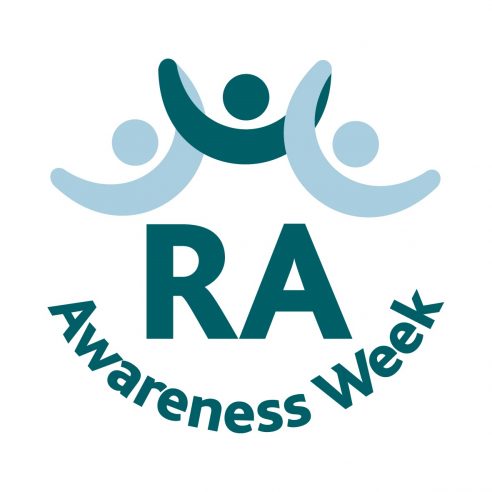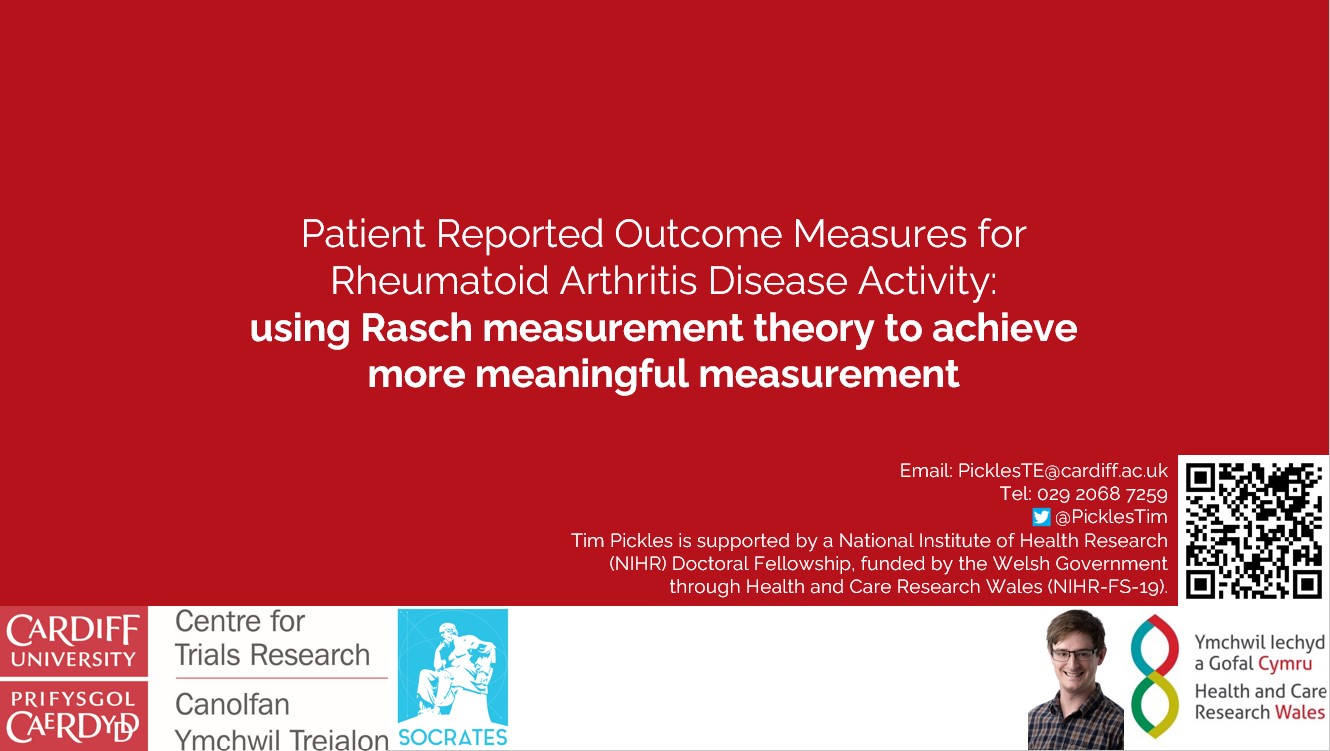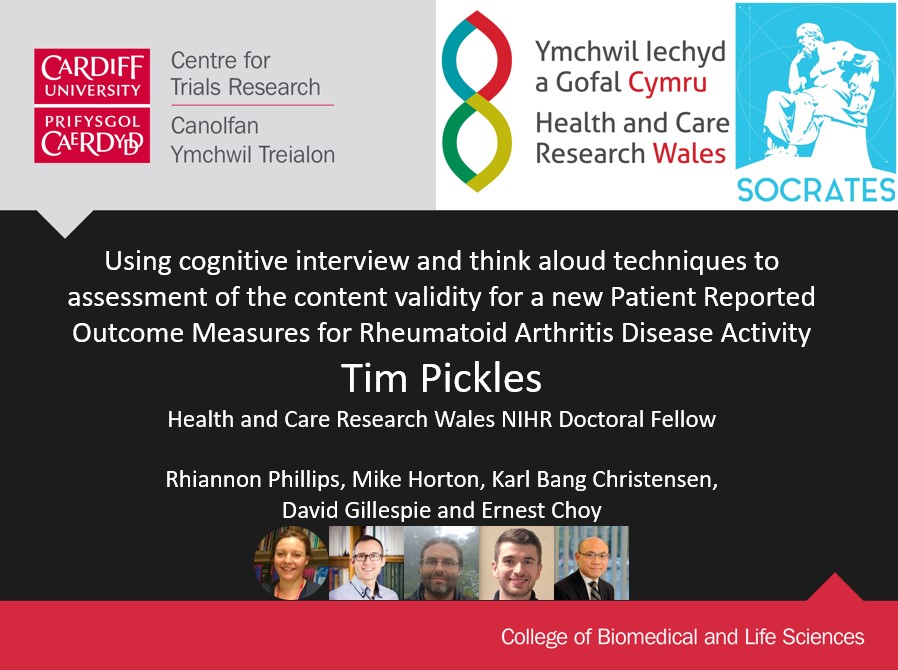Rheumatoid Arthritis Awareness Week 2023
11 September 2023
It is Rheumatoid Arthritis Awareness Week this week (11th to 15th September 2023), which is organised by the National Rheumatoid Arthritis Society (NRAS).
The theme of RA Awareness week 2023 is #RADrain – showing how day-to-day activities can drain your battery, and leave you unable to continue with more events during the day, for example going out in the evening to socialise. Things like getting a stressful email at work can drain a person with RA’s battery a huge amount compared to someone who is not living with this illness. Finding there is no parking near your office is probably an inconvenience for most people, however if you have RA and have had a busy morning, that extra walk can take a huge chunk out of your daily battery. It really can be simple things that can lead to your battery being almost out before you even get home for the evening.
Given the topic of my research is the measurement of Rheumatoid Arthritis Disease Activity using Patient Reported Outcome Measures (PROMs), I thought I would update on what I have done since my last blog in December 2022.
British Society of Rheumatology Conference, Manchester, April 2023
First, I’m going to jump forward a little. I attended the BSR Conference in Manchester and presented a poster on the Rasch measurement theory analyses I had previously presented at ISOQOL and the Cardiff University Infection and Immunity annual Meeting. This was a great opportunity to talk about my research with rheumatologists and rheumatology researchers.
- The abstract for this poster is published here https://academic.oup.com/rheumatology/article/62/Supplement_2/kead104.076/7136452?login=true
- Tweet here: https://twitter.com/PicklesTim/status/1650539315410132994

Cognitive Interviewing
Now going back to where I left off in my previous blog: in November 2022, I started a piece of research completely out of my comfort zone having worked entirely in quantitative research: cognitive interviewing and qualitative research.
This process started by sampling respondents to the original questionnaire to get maximal variation and balance across age groups, gender and education level. I interviewed 20 people with RA between November 2022 and February 2023, all in a one-to-one setting, with a quarter on zoom and the rest in participants’ residences, ranging from Quaker’s Yard to Barry and many in Cardiff.
The purpose of these interview was to get the thoughts of people with RA on the items deemed appropriate to measure Rheumatoid Arthritis Disease Activity in the Rasch measurement theory work. This showed that 12 items across domains of pain, stiffness, disease activity, tenderness and swelling and physical function could provide this measurement, but also that items from the general health and fatigue domains measured a different construct.
These items had recall periods of a week, a day and now, and made reference to arthritis, rheumatoid arthritis, illness, health condition, or made no such reference. And all items had the best outcome on the left and the worst on the right.
Interviews were conducted by firstly asking the participant to complete the items as part of a think aloud process, and then asking a set of questions afterwards.
From this, I analysed the transcripts of these interviews to assess content validity of the items in terms of comprehensiveness, comprehensibility and relevance.
The major headline was that, from the comprehensiveness aspect, there are no items or concepts missing here that should have been covered and therefore it is suitable to use these 12 items to measure Rheumatoid Arthritis Disease Activity. Furthermore, this is the first time any qualitative research on content validity has been done in the field of Rheumatoid Arthritis Disease Activity PROMs.
Personally, I really enjoyed doing these interviews and getting to talk to patients about their experiences, which was a little surprising. I found the analysis a slightly harder and kept trying to attach number to things.
National PROMs Research Conference, Sheffield, June 2023
Having completed these interviews and the analyses that followed, I was then able to present this research at the National PROMs Research Conference in Sheffield. Much like the research itself, this was again my first presentation on qualitative research. I was staying in a hotel in Leeds and working with my supervisors Mike Horton and Karl Bang Christensen that work. I don’t think the guests in the nearby rooms were expecting to hear repeated presentation practices! This conference brings together researchers from academia, industry, the third sector and the NHS with a common interest in PROMs and a wonderful forum to see what others in the field are doing. It was great to see a large Welsh contingent from Cardiff and Bangor Universities, along with colleagues from NHS organisations Cedar and the Welsh Value in Health Centre.
Tweets
- https://twitter.com/JillCarlton1/status/1671826726098202624
- https://twitter.com/PicklesTim/status/1674333639532847104

Next
I am excited to be presenting my research at further international conference. In October, I will be travelling to Calgary in Canada to present a poster on the qualitative research.
Then, in November, I will be in San Diego at the American College of Rheumatology Convergence presenting a poster summarising both the quantitative and qualitative aspects of my research.
Beyond these exciting conferences, I also need to finish my PhD thesis and continue working on the computer adaptive test that I am trying to develop along with The Psychometrics Centre at the University of Cambridge. I also hope to publish this research across multiple articles that I will be submitting to Rheumatology and I also hope to disseminate the results to people with RA through NRAS towards the end of 2023 and into 2024.
I am hoping to secure a Next Steps Award from Health & Care Research Wales and then apply for a Health & Care Research Wales Advanced Fellowship, which will build on the research I have completed through my Health & Care Research Wales NIHR Doctoral Fellowship and PhD.
Funding note
Tim Pickles is supported by a National Institute of Health Research (NIHR) Doctoral Fellowship, funded by the Welsh Government through Health and Care Research Wales (NIHR-FS-19).
- December 2025
- October 2025
- June 2025
- May 2025
- April 2025
- March 2025
- February 2025
- December 2024
- November 2024
- October 2024
- September 2024
- July 2024
- June 2024
- May 2024
- April 2024
- March 2024
- December 2023
- November 2023
- September 2023
- July 2023
- June 2023
- April 2023
- March 2023
- February 2023
- December 2022
- November 2022
- October 2022
- September 2022
- August 2022
- July 2022
- June 2022
- May 2022
- April 2022
- March 2022
- February 2022
- January 2022
- November 2021
- September 2021
- July 2021
- June 2021
- May 2021
- March 2021
- February 2021
- December 2020
- November 2020
- September 2020
- August 2020
- July 2020
- January 2020
- December 2019
- October 2019
- September 2019
- July 2019
- June 2019
- May 2019
- April 2019
- February 2019
- December 2018
- November 2018
- October 2018
- September 2018
- August 2018
- July 2018
- June 2018
- May 2018
- April 2018
- March 2018
- December 2017
- October 2017
- August 2017
- July 2017
- June 2017
- May 2017
- April 2017
- March 2017
- February 2017
- January 2017
- December 2016
- October 2016
- August 2016
- June 2016
- April 2016
- March 2016
- February 2016